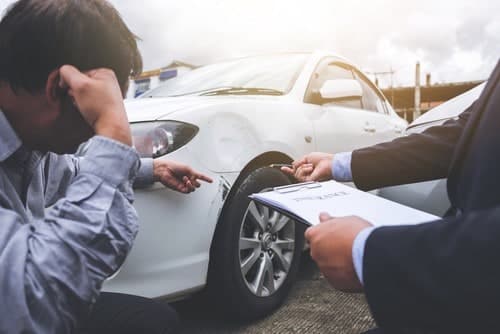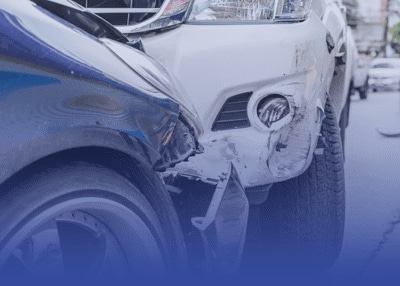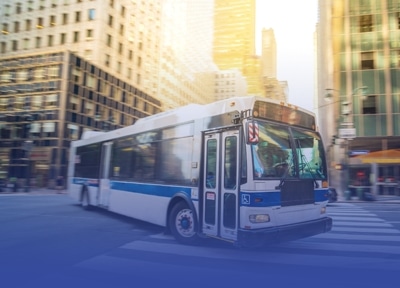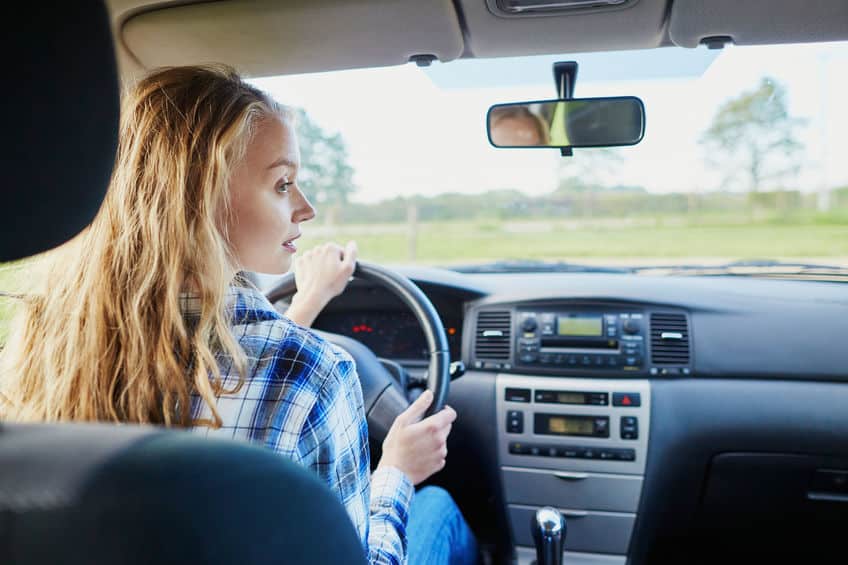11 April, 2022

After any car accident, it’s usually clear who the at-fault driver is. However, not all crashes involve multiple drivers. Single-vehicle accidents, which only involve one car, are more common than you think. In 2018, 53% of motor vehicle crash deaths were from single-vehicle incidents.
When you’re in a single-vehicle accident, you may automatically assume you were at fault. But that may not always be the case. Several factors may make another party liable for your single-vehicle accident. For help determining whether someone else might be liable for damages from this type of accident, you may want to consider hiring a car accident attorney.
A single-vehicle accident is any motor vehicle incident that causes damage to one car. Even if another driver contributes to the accident, but their vehicle isn’t damaged, the crash is still considered a single-vehicle accident. For example, this type of collision could be when another driver pulls out in front of you suddenly, and you drive off the road to avoid a collision and hit a tree.
A driver is responsible for a single-car crash when their actions caused the accident. So, if the roads are icy and you’re driving too fast, you’re most likely liable for the collision. Additionally, if you’re excessively speeding when your crash occurs, you also may be held responsible. If a court or insurance company does find you liable, you may face several outcomes, such as large medical or vehicle repair bills, fines for traffic violations, or criminal charges.
There are numerous reasons why you might not be liable for a single-car accident. Some examples are:
There are numerous reasons why you might not be liable for a single-car accident. Some examples are:
There are times when a car part is defective and the company recalls it. Unfortunately, in most cases, these recalls are not put in place until a driver is in an accident and reports the issue. If a vehicle defect caused your accident, you should file a product liability lawsuit to recover damages you suffered because of the manufacturer’s negligence.
Your accident may have been caused by a large pothole or poorly iced roads during a snowstorm. If this is the case, you may be able to file a lawsuit against the city, county, or another government agency responsible for maintaining roads.
There are times when another driver causes a single-vehicle accident. For instance, if a cyclist turns into your lane without looking or swerves into the intersection, your first instinct is probably to veer to avoid hitting the rider. But this means you’ll most likely hit something else, such as a guard rail or a tree. If you didn’t hit the cyclist, then you may be able to hold them liable.
Intoxicated people hit things when they drive. If a court finds you guilty of driving under the influence, you may have to pay restitution to repair any damage that resulted from the accident. Whether your insurance company will compensate you for your injuries will depend on your plan and your attorney’s ability to negotiate with an adjuster.
If you’ve been involved in a single-vehicle accident, you need a trusted attorney on your side. There is a possibility you were not entirely at fault for the accident. An expert personal injury attorney at The Barnes Firm will launch a full investigation into your case and the circumstances leading up to the crash. We’re dedicated to providing you with the soundest case possible and will work for you to obtain the compensation you deserve.
With over 100 years of combined experience, our team of legal professionals can handle your case and are available 24/7 to review your accident and answer all your legal questions. Call our office today or complete a contact form to schedule your free consultation.
The Barnes Firm (800) 800-0000
Written by The Barnes Firm, reviewed by Richard Barnes

Rich Barnes
President
Richard Barnes: “As President of The Barnes Firm, I have dedicated my career to achieving justice in hundreds of cases for the victims of injuries caused through the fault of others. Additionally, I have been honored to have been elected Best Lawyer and a Super Lawyer”
Years of Experience: 30+ years
LinkedIn Profile: Richard Barnes


This page has been written, edited, and reviewed by a team of legal writers following our comprehensive editorial guidelines. This page was approved by attorney president Rich Barnes who has more than 30+ years of legal experience as a practicing personal injury trial attorney.
The Barnes Firm is here to help you. Our personal injury firm helps individuals and their families who
have suffered an injury in an accident.

Whether your car crash was minor or serious, any injuries sustained in an accident can be painful and costly.

All motorcycle accidents are different, the compensation you receive will depend on the circumstances surrounding your accident.

A truck accident can be catastrophic, even in low-impact crashes, if you or your family are involved, you may be entitled to significant financial compensation.

There are dozens of accidents involving school buses each year, most commonly, involving children outside a school bus.
Explore Articles Related to Your Situation

Summer is a time of freedom, fun, and adventure for many teenagers, but it can also be a season...
read more
We’ve all experienced looking in our rearview mirror and seeing the vehicle behind us traveli...
read more
The change of season means warmer weather and long vacations. Along with all of the wonderful t...
read more
The liability in red-light accident cases is determined by how both drivers acted and how the e...
read moreWe are always available to discuss your case. Give us a call at (800) 800-0000.
Fill out our form and we will contact you shortly to discuss your case
Our attorneys will come to your home, office or hospital at your convenience.
We are available anytime, including after hours and
weekends.
420 Lexington Avenue
Suite #2140
New York, NY 10170
Phone: (800) 800-0000
Fax: +1 (800) 853-5153
600 Old Country Road
Suite #425
Garden City, NY 11530
Phone: (800) 800-0000
Fax: +1 (800) 853-5153
500 Pearl Street
Suite #700
Buffalo, NY 14202
Phone: (800) 800-0000
Fax: +1 (800) 853-5153
451 Grider Street
Buffalo, NY 14215
Phone: (800) 800-0000
Fax: +1 (800) 853-5153
28 East Main Street
Suite #600
Rochester, NY 14614
Phone: (800) 800-0000
Fax: +1 (800) 853-5153
633 West 5th Street
Suite #1750
Los Angeles, CA 90071
Phone: (800) 800-0000
Fax: +1 (888) 800-7050
555 12th Street
Suite #1470
Oakland, CA 94607
Phone: (800) 800-0000
Fax: +1 (888) 800-7050
655 W. Broadway
Suite #940
San Diego, CA 92101
Phone: (800) 800-0000
Fax: +1 (888) 800-7050